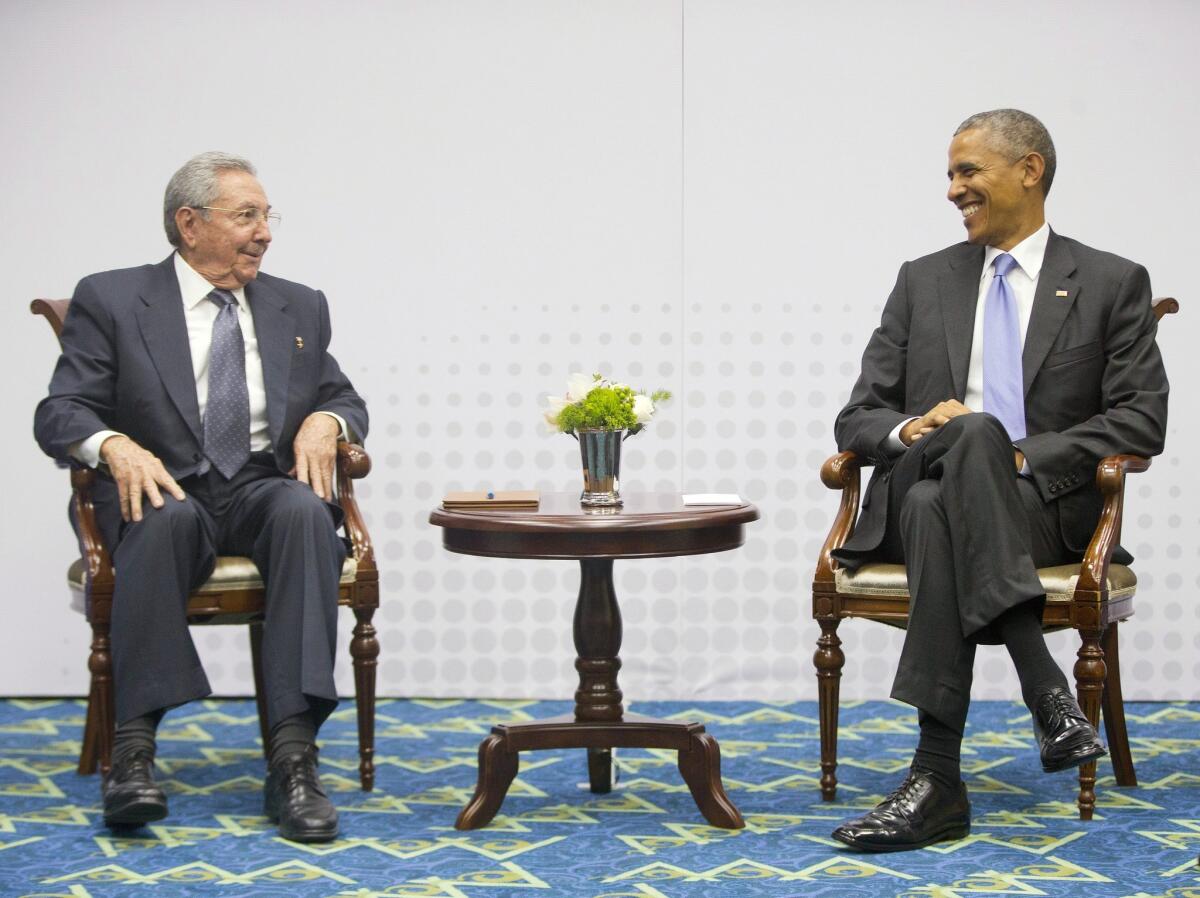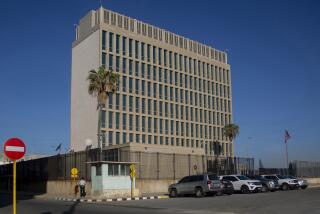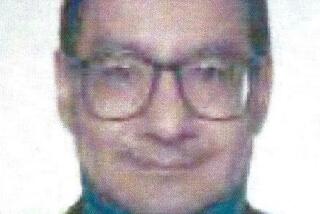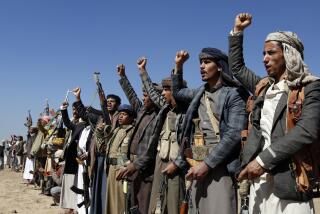Editorial: Cuba off the U.S. terrorism list: Goodbye to a Cold War relic

History may ultimately view it as an incremental step in the normalization of diplomatic relations between the United States and Cuba, but the Obama administration’s decision this week to drop the island nation from the list of state sponsors of terrorism is a welcome and overdue move. The reality is that Cuba’s place on the list, where it has been since 1982, owed more to Cold War politics and Central American civil wars than to its allegedly pernicious role in international terrorism.
To be sure, Cuba has engaged in regrettable acts, not the least of which is providing sanctuary to fugitives from U.S. justice, including Assata Shakur, who escaped from a New Jersey prison in 1979 while serving a life sentence for the murder of a state trooper. Cuba also provided a haven for terrorists linked to the Basque ETA separatist movement and the FARC revolutionaries in Colombia. But the main thing that landed Cuba on the list was its financial and military support for Marxist insurgencies, particularly in Latin America, where the U.S. was supporting the other side. And it should be noted that the U.S. has given sanctuary to Luis Posada Carriles, whom the Cubans believe was involved in the 1976 bombing of a Cuban airliner that killed 73 people.
As President Obama said, the world has changed. With the collapse of the Soviet Union, the proxy wars between capitalism and communism have mostly turned economic. What’s more, Fidel and Raul Castro have, according to Obama administration officials, made “many, many, many speeches” publicly rejecting terrorism. And Cuba has worked with Spain to repatriate some of the ETA members it protected, and now serves as a peace broker in Colombia. Although the presence of U.S. fugitives in Cuba remains a sticking point, it is the kind of problem that should be resolved through negotiations between nations that respect each other’s sovereignty.
Cuba also has work to do on other fronts. Among other things, it still preemptively jails dissidents (and sometimes beats them) to preclude their involvement in protests, according to Human Rights Watch. Such issues should be raised as the normalization process continues.
Dropping Cuba from the terrorism list is part of a welcome dismantling of the isolation wall the U.S. erected more than half a century ago. Now Congress should lift its embargo, and the administration should continue to loosen restrictions on travel, trade and international banking. It’s time to let the echoes of the Cold War die out.
Follow the Opinion section on Twitter @latimesopinion and Facebook
More to Read
A cure for the common opinion
Get thought-provoking perspectives with our weekly newsletter.
You may occasionally receive promotional content from the Los Angeles Times.






